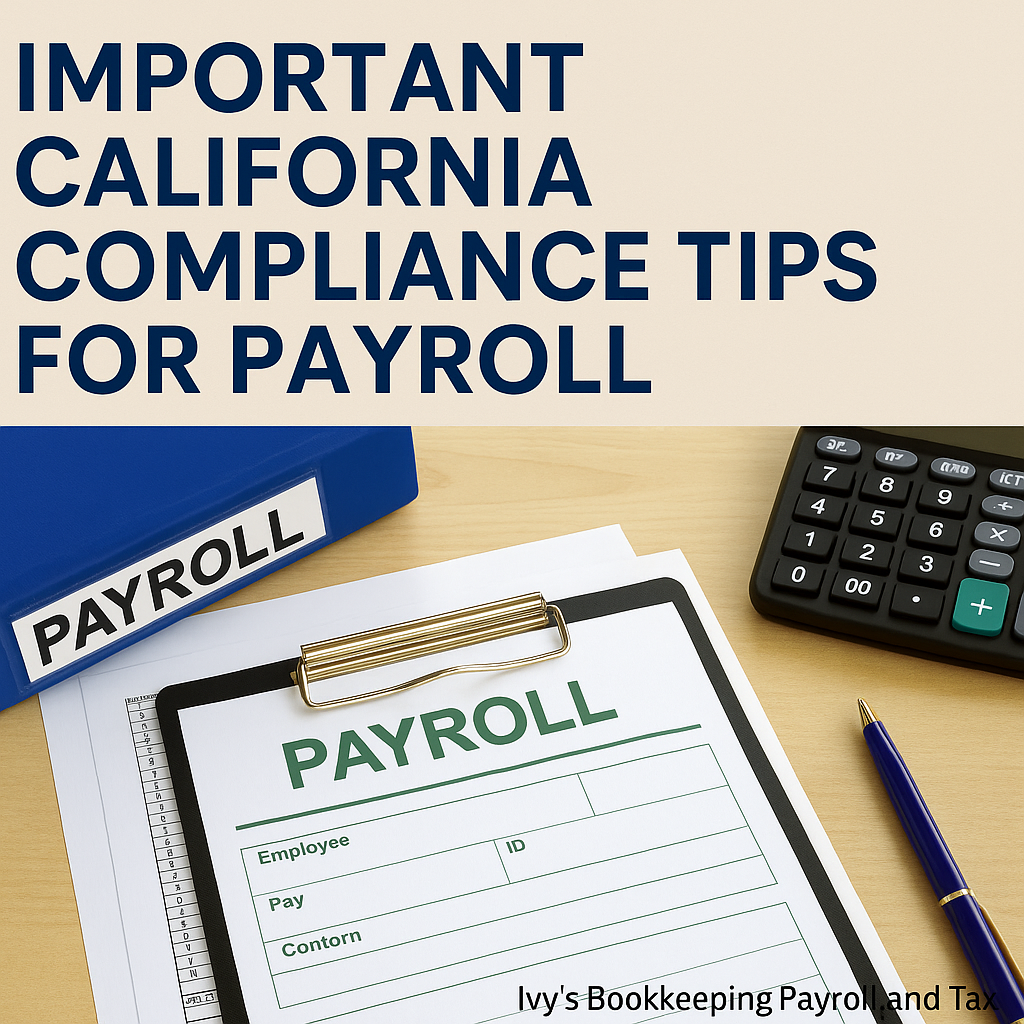Important California Compliance Tips for Payroll
Staying compliant with California payroll laws isn’t just a smart move—it’s a legal necessity. California is known for having some of the most complex and employee-friendly labor laws in the country. Whether you’re a small business owner or an HR professional, here are essential tips to ensure your payroll stays on the right side of the law in 2025 and beyond.
1. Understand California’s Minimum Wage Laws
California’s minimum wage changes annually and may vary by city or county. As of 2025, the state minimum wage is $16 per hour, but cities like San Francisco, Los Angeles, and San Jose often set higher rates. Always check local ordinances.
2. Comply with Overtime Rules
California requires overtime pay for:
-
Any hours worked over 8 hours in a day
-
Over 40 hours in a workweek
-
The first 8 hours on the seventh consecutive workday
Double time is also required in some cases. Accurate tracking of daily hours is critical.
3. Provide Mandatory Meal and Rest Breaks
Non-exempt employees are entitled to:
-
A 30-minute unpaid meal break for shifts over 5 hours
-
A second 30-minute meal break if working more than 10 hours
-
A paid 10-minute rest break for every 4 hours worked
Failure to provide these breaks can result in hefty penalties.
4. Use a Compliant Pay Stub Format
California requires very specific information on employee pay stubs, including:
-
Gross wages
-
Total hours worked (for non-exempt employees)
-
All deductions
-
Net wages
-
Pay period dates
-
Employer’s legal name and address
-
Employee’s name and ID or SSN’s last 4 digits
Mistakes here are one of the most common sources of wage-and-hour lawsuits.
5. Abide by Final Paycheck Laws
When an employee quits or is terminated:
-
If terminated: You must pay all wages owed immediately.
-
If they quit with 72+ hours’ notice: Wages are due at the time of quitting.
-
Without notice: You have 72 hours to pay.
Delays can result in waiting time penalties.
6. Keep Up with Sick Leave and PTO Laws
California requires paid sick leave (at least 1 hour for every 30 hours worked), but some cities have expanded rules. Make sure your PTO policy is compliant with both state and local regulations.
7. Use a Reliable Payroll System
Manual payroll processing in California is risky. Use payroll software or partner with a professional accountant to:
-
Stay compliant with new tax and labor laws
-
Automate calculations and withholdings
-
Reduce the risk of human error
8. File All Payroll Taxes on Time
This includes:
-
Federal and California income tax withholdings
-
Social Security and Medicare
-
Unemployment Insurance (UI)
-
Employment Training Tax (ETT)
-
State Disability Insurance (SDI)
Missing deadlines can result in penalties and interest.
Conclusion
California payroll compliance isn’t optional—it’s critical to the health of your business. An experienced accounting firm can ensure your payroll practices are fully compliant, saving you time, money, and stress.
Need Help with Payroll Compliance in California?
Ivy’s Bookkeeping Payroll and Tax specializes in California payroll and tax compliance for businesses of all sizes. Contact us today for a consultation and let us handle the complexity while you focus on growth.


0 Comments